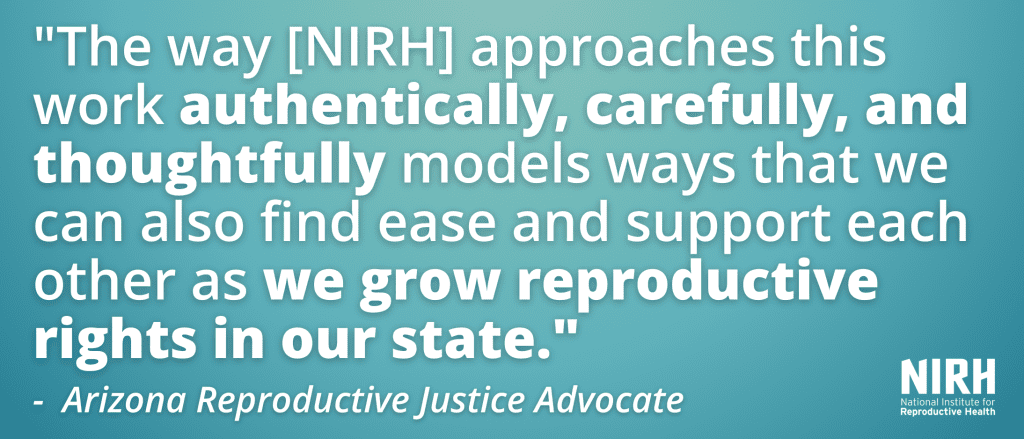NIRH 2025 Requests For Proposals
The National Institute for Reproductive Health (NIRH) currently has three Requests for Proposals open for applications. These RFPs are designed to support state and local-level organizations in advancing proactive policies in their communities, in the following categories of work:
- Abortion Coverage Policy Lab: Expanding Access through Public Funding for Abortion
- Birth Justice Policy Lab: Increasing Access to Birthworkers in Black or Indigenous Communities
- Repro and Data Privacy Policy Lab: Advancing State and Local Legislation to Regulate Surveillance
Proposals for each of the RFPs may be submitted here. The deadline for proposal submission is Wednesday, June 11 at 11:59 pm PDT. Please contact [email protected] with any questions.
Organizations interested in applying are encouraged to attend our informational webinar on Tuesday, May 20 at 3 pm EDT. NIRH staff leading each of these initiatives will walk you through the RFPs, offer tips for crafting your proposal, and answer general questions.
Register for the webinar here. A recording will also be available if you are unable to attend.
For over 20 years, NIRH has worked hand-in-hand with partners in communities across the country to create a new future for reproductive rights and justice. This work is fueled by the development of bold policy solutions, including legislation, budgetary advocacy, regulatory change, and executive action. It requires wrap-around support through technical assistance; strategic guidance; and advocacy, policy, and communications support. NIRH’s approach contributes to the sustainability of our movement by building state and local capacity and creating opportunities for community learning and knowledge sharing amongst partners. Since 2008, NIRH has advanced our mission in 43 states, including more than 80 localities, by working side-by-side with more than 200 organizational partners.

NIRH is committed to centering and working with those who face disproportionate barriers to accessible reproductive health care and who are most impacted by systemic racism. This includes Black and Brown people, immigrants, the LGBTQ+ community, people with disabilities, and people with low incomes. We prioritize partnering with organizations led by and deeply connected to these communities as we strive to build an equitable world where all people can determine their own futures and all families can thrive. We also recognize that reproductive freedom cannot be won in isolation. Across our partnerships, we encourage alignment with other movements—racial, economic, LGBTQ+, and democracy—recognizing that the same forces attacking reproductive autonomy are also threatening fundamental civil rights.